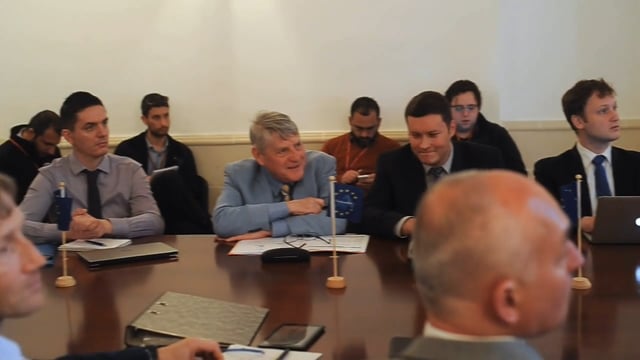[WATCH] In Europe, waste crimes top list of crimes against environment
Interpol survey amongst European countries finds that member states are mainly concerned with corruption links to environment crime • Malta still needs to strengthen research in this field


The Maltese Presidency of the European Council has said it would give environmental crimes their due attention as the EnviCrimeNet urges member states to step up their effort in recognising such crimes to be as serious as drug trafficking.
EnviCrimeNet is an informal network connecting police officers and other crime fighters in the field of environmental crime. But because of different legislation across the member states, the network is urging member states to enhance their efforts in recognizing environment crime as a serious threat to society.
The network is in Malta for an informal meeting. In a brief presentation to members of the media, chairman Roel Willekens explained why it was pivotal that such crimes are given the necessary attention.
“The sad story in Europe is that many criminal cases are dismissed only few result in a sentence,” Willekens said. “The network wants the EU to recognize the need for it to be a priority and the importance of supporting practitioners.”
The network wants Europe to develop coordinated integrated strategies as they believe that only efficient controls can uncover criminal cases.
An Interpol survey carried out amongst 34 European countries found that waste crime, poaching and trafficking of protected species of fauna and fisheries crime were considered to be the areas that concern countries most.
European countries also reported links with corruption, counterfeiting, drug trafficking and financial crime. One country reported links with human trafficking whilst three others pointed towards terrorism.
Crimes related to the environment, Willekens added, also includes the involvement of organized crime groups especially when it revolves around the illegal trade of endangered species and the illegal collection, transport and storage – including dumping and recycling – of hazardous and electronic waste.

According to the report, illegal hunting and poaching can have links to the organized crime.
Addressing the informal meeting at the Police’s headquarters in Hamrun, Home Affairs Minister Carmelo Abela acknowledged that environmental crime has a long history of being considered “victimless” and therefore of lower priority when compared to other forms of serious and organized crime.
“The damage caused by environmental crime is irreparable and may cause diseases, deaths, environmental disasters and even affect climate change. Despite the potentially serious consequences of such crime, it’s not taken as seriously as it should be.”
Abela reassured the network that the Maltese Presidency intended to continue working on the implementation of Council Conclusions which saw ministers agreeing on measures countering environment crime.
“Malta will continue to act as an honest broker in the discussions on the selection of the next set of EU Crime Priorities that will strategically guide the fight against serious and organized crime over the next four years.”
Asked by MaltaToday what was known about the links between environment crime and corruption in Malta, Abela admitted that little was known and that research was required.


.jpeg)



.jpg)










.png)





